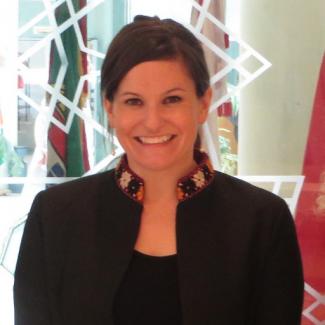Opening the door to formalisation: Small-scale diamond mining and rural economic development in Sierra Leone
Since their discovery in the 1930s, alluvial diamonds have made a significant contribution to the rural economy in resource-rich stretches of Sierra Leone. However, although the artisanal diamond mining sector has provided employment for hundreds of thousands of poor people, has generated valuable start-up capital for downstream industries and has helped to nourish smallholder agriculture, many of its gains have come at a cost. The informal dynamics of the sector have left many artisanal miners unsupported and vulnerable to exploitation, often trapping them in a vicious cycle of poverty. The key to transforming the sector, it has been argued, is formalisation – the process of licensing, organising and empowering unregistered operators. Proponents of formalisation argue that not only will a formalised artisanal mining sector regularise and maximize economic impacts, but it will facilitate increased access to much-needed finance and other support.
The purpose of this research is to broaden understanding of the dynamics of Sierra Leone’s artisanal diamond mining sector, with the aim of supplying the ingredients for a more robust blueprint for formalisation. We believe that formalisation of alluvial diamond mining – that is, moves made specifically to bring operators into the legal domain – could have a transformational effect on rural livelihoods whilst simultaneously bolstering revenue for government, principally through taxation and export earnings.
Building on existing knowledge of small-scale mining in Sierra Leone, including work undertaken by the investigators, the specific objectives of the proposed research are as follows:
- To map the latest iteration of the alluvial diamond supply chain in Sierra Leone, and to identify the roles of the actors who comprise it. Specifically, we seek to determine the impact of the Ebola crisis on supply chains, and to explore if existing supply chain structures and linkages have been altered, and if so how.
- To generate comprehensive livelihood profiles of Sierra Leone’s diamond diggers. There are indications that those engaged in diamond mining in Sierra Leone balance their work with a host of other economic activities, largely in an attempt to avert risk and to accumulate savings. What connections to mining are relevant when establishing new rules and regulations? How is risk spread across the household? What does the sector look like now, and how does it impact livelihoods?
- To prescribe recommendations for formalising small-scale diamond mining in Sierra Leone. There is an opportunity, in light of ongoing reconfiguration of supply chains in response to changes brought about by Ebola, to put diggers at the heart of a formalisation process. Previously, debt bondage and parasitic relationships with buyers prevented diggers from escaping poverty. Policies which are fine-tuned to connect with and ultimately empower the digger could improve his/her economic position whilst simultaneously providing a steady stream of tax to the state. What are the benefits and rules of formalisation, and what will work on the ground? Moreover, why are regulations and policies not ‘thinking’ this way?
- To engage policymakers, with the aim of further empowering the most marginalized in the supply chain. An attempt will be made to engage policymakers with collected data, and connecting the marginalised operator to wider policymaking and commercial circles. In particular, an attempt will be made to connect with the Diamond Development Initiative’s (DDI) efforts to implement the Development Diamond Standards (DDS) at sites in Kono.





